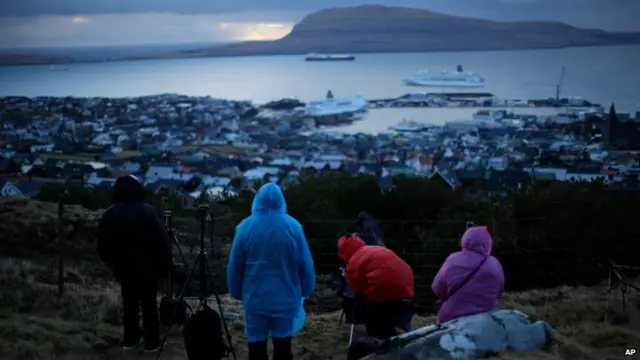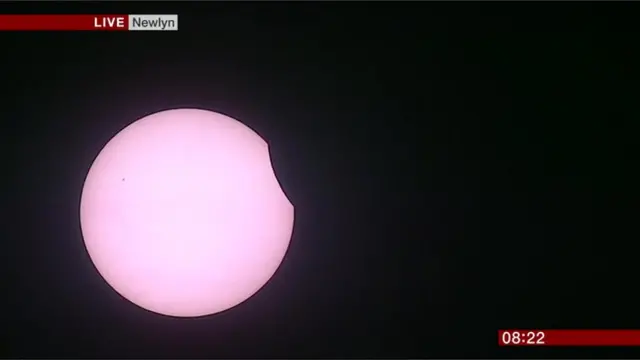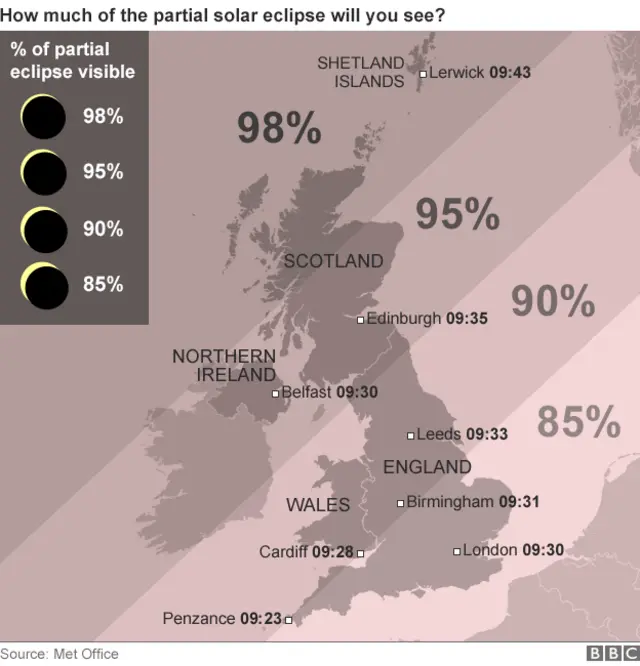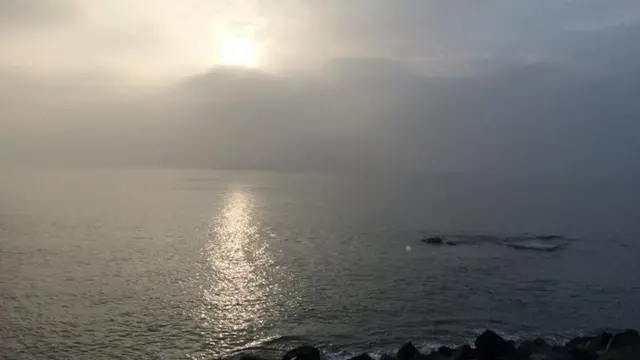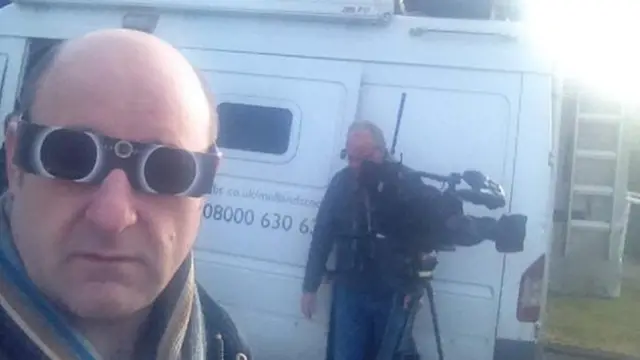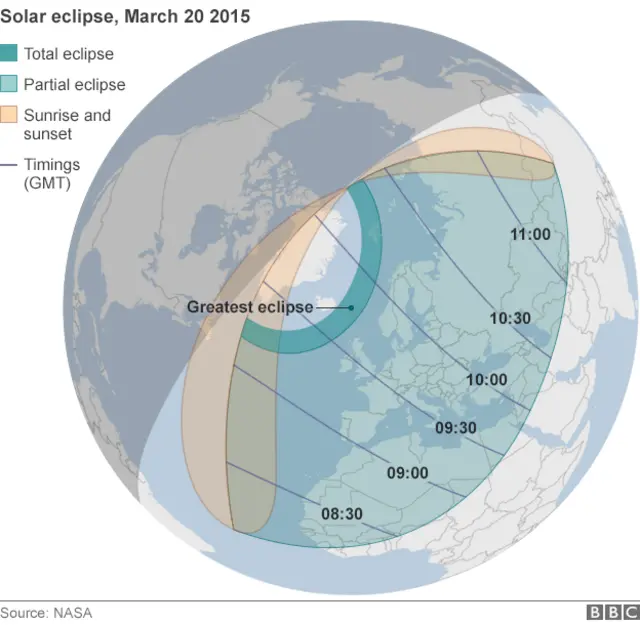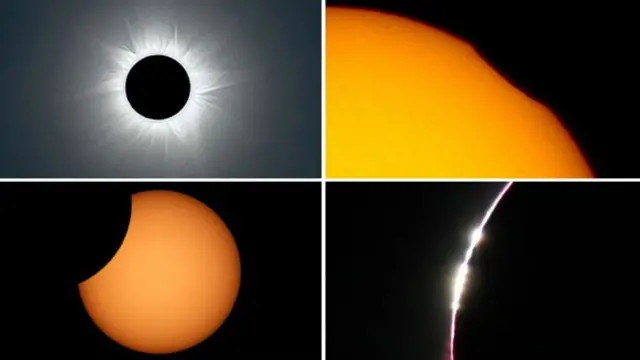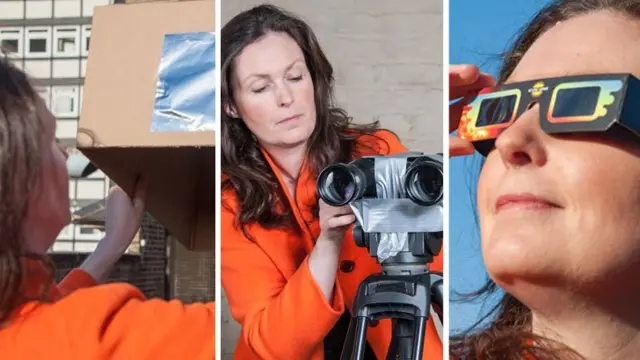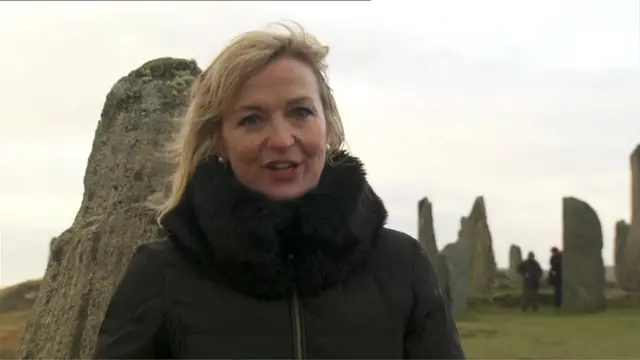Postpublished at 08:36 GMT 20 March 2015
How are you planning to watch the eclipse? Are you having an eclipse party? Or have you travelled far afield to get the best view? Let us know!
You can email haveyoursay@bbc.co.uk with your experience. Please include a telephone number if you are willing to be contacted by a BBC journalist.
